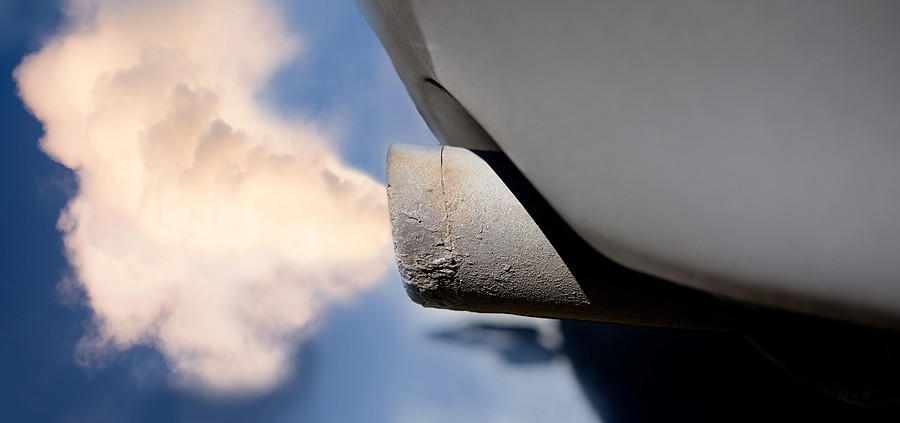If you're dealing with any exhaust noises, you should always be curious and ask yourself, “why is my exhaust loud?” Typically, there are six common types of abnormal exhaust noises you might encounter:
- Rattling
- Clunking
- Ticking
- Hissing
- Pinging
- Vibrating
Whenever you deal with loud noises coming from any system, you should take the problem seriously because it could be linked to a major issue. Typically, acting on these problems early can help you resolve the issue without needing to install major components, which means much lower repair costs.
When it comes to the exhaust system, you shouldn't be hearing very weird loud noises because there could be something wrong with the exhaust system itself or with any related of our systems.
This article will walk you through the six common types of exhaust noises that you might experience during the lifetime of your car. It will also provide you with general solutions to help you resolve the issue as soon as possible without waiting so long and dealing with major repair costs.
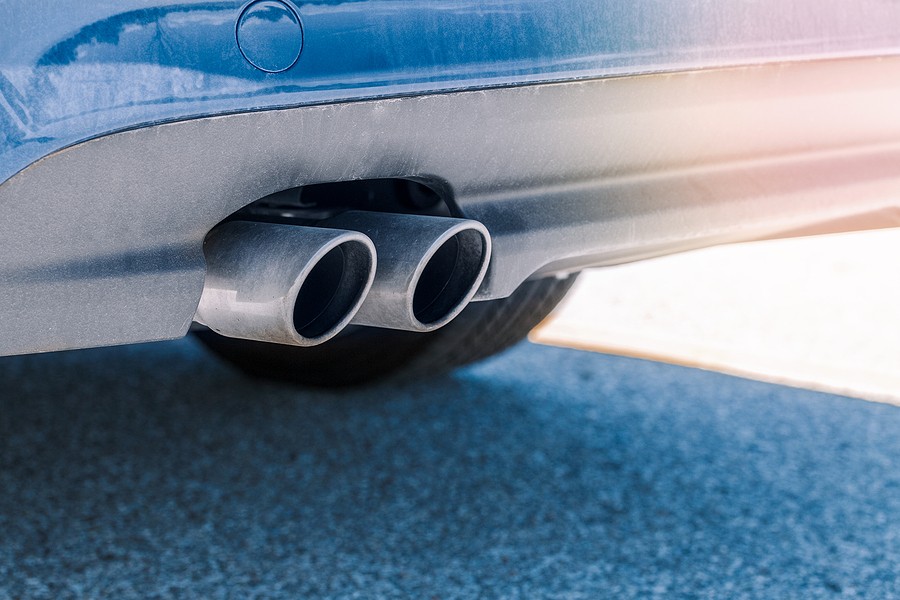
Why is my exhaust loud? Six potential causes and solutions
Your exhaust system shouldn't be loud. Otherwise, you're dealing with something minor and could easily be major. Remember that not every noise coming from the exhaust is related to the same thing. In other words, depending on the type of noise you're dealing with, you can identify different potential culprits.
Therefore, the biggest benefit and favor you can give your mechanic is to describe what you're dealing with accurately. Let's take a closer look at the six common noises that you might experience during the lifetime of your exhaust system, which could indicate some internal issues:
1. Rattling
Rattling is the first and most common type of exhaust noise that you might experience. If that's the case, take a look at your exhaust system and check for any loose or missing components. For example, there might be a missing sealer or isolator causing this rattling noise.
There are other reasons for this rattling noise that could be linked to a damaged muffler or a loose catalytic converter. Also, the problem could be related to a loose heat shield in some scenarios. So check for all these components, and if you suspect that one of them is not in good condition or is causing this rattling noise, your mechanic needs to take a closer look and determine whether you need to replace it or fix it.
It's hard to tell how much exactly you're going to expect to pay for fixing rattle noise because the repair costs will depend heavily on the root culprit of the problem. In other words, if all that you're dealing with is just because of a simple loose seal, your repair costs will be much lower than someone else dealing with a damaged catalytic converter which means massive repair costs.
2. Clunking
If you determine that the noise is not like rattling and say it's more of a clunking noise, that indicates something different. The rattling noise typically comes from the Catalytic converter. Unfortunately, the kettle to converter problems typically means very expensive repair costs because the component itself is very expensive.
Even if you try to find a used catalytic converter, our chances are still that you will be high repair costs. In addition, there is no guarantee that you can resolve the issue without dealing with some other complications shortly.
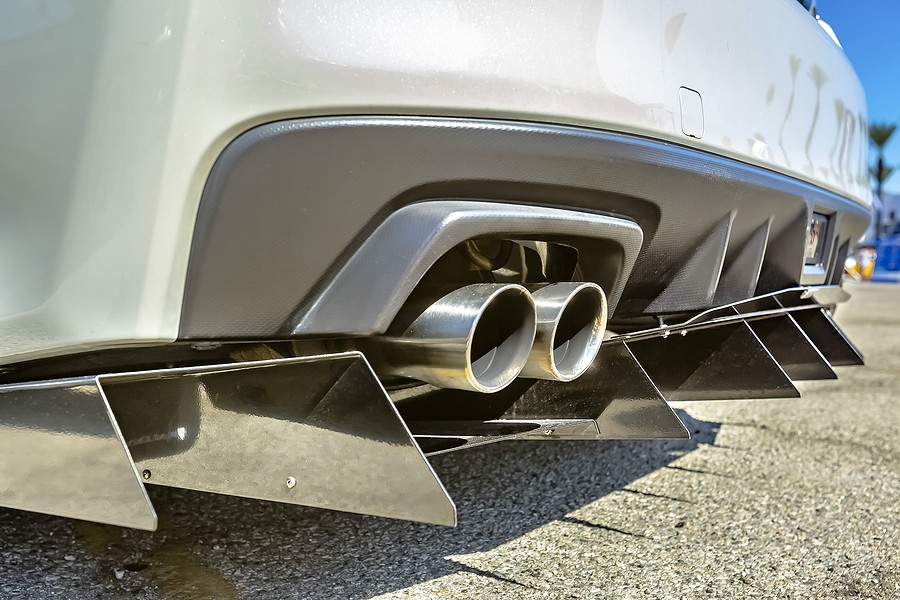
3. Ticking
If what you're experiencing is more like a ticking noise, your problem is likely related to some exhaust leak. Unfortunately, this problem is tricky because it can be very hard to determine where the leak is happening and how to find it.
Your mechanic should have certain tools to determine the exact location of every exhaust leak and fix it. The more you wait on the problem, the more complicated it gets, and that's why whenever you notice any minor ticking noise, you cannot check with the mechanic and reach out to him immediately before waiting for the next oil change time.
4. Hissing
Hissing noises are also related to some leaks in the exhaust system. All hissing and ticking noises are very similar, although they might sound slightly different from each other. They are typically related to the same culprit. One of the things you can do to look for some more clues is to check on potential leak sources.
For instance, some of the same comments look like rusted components, missing seals, damaged gaskets, missing mounting or ceiling, etc. Check around the connections and find any clue that helps your mechanic narrow those down and reduce the labor time, which adds to your final bill.
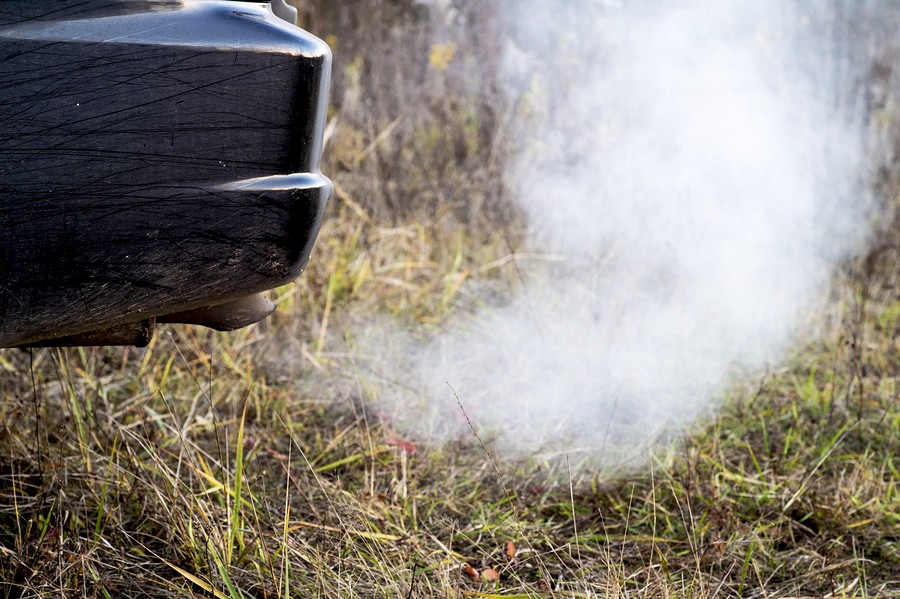
5. Pinging
Have you ever experienced some pinging noise coming from your exhaust system? The good news is that the pinging noise should not be very worrying because it is related to a typical condition in your vehicle. For example, when your car is very hot, and it's about to cool down, that's where you start hearing the pinging noise.
When the exhaust system components are very hot, they will need some time to cool down, and the metal components will start slightly shrinking, making the weird pinging noise.
The longer you drive your car, the more you'll notice what's weird versus the normal noise. In other words, you should be monitoring the vehicle and realizing that this pinging noise is continuous, and it happens every time you stop your car, and your vehicle is about to cool down. Therefore, you shouldn't be too worried about this pinging noise.
6. Vibrating
Sometimes people might describe the weird noises coming from the exhaust system as vibrating rather than noises. You might also be dealing with some exhaust system problems like those related to any damaged exhaust components connected to the vehicle chassis.
Sometimes, it can be very hard to tell what is causing this vibration until you perform a thorough inspection and look for where this vibration is coming from because it can't narrow down your list of potential damaged or bad components within the exhaust system.
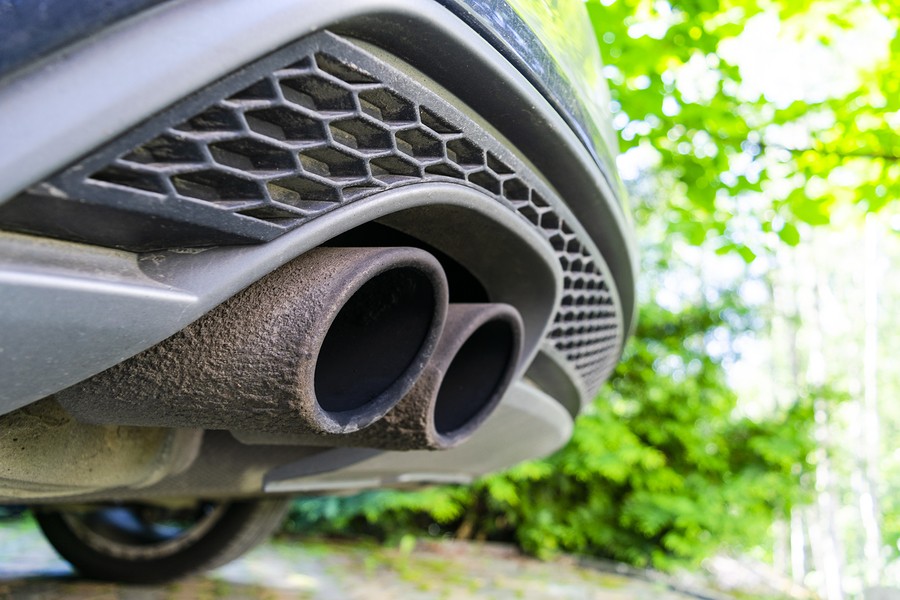
How much does it cost to fix exhaust noises?
It all depends. For example, if your noises have to do with a bad muffler, expect to pay somewhere between $800 and 834 dollars. However, if your problem is minor and is related to a missing or loose cap or something, your repairs should not cost you more than $10. Therefore, to get a better accurate estimate of how much to expect to fix these loud noises, you must consult your mechanic and get an actual quote.
How to save on fixing loud exhaust noises?
Costs are one of the biggest challenges facing anyone trying to fix his vehicle, whether he's dealing with problems related to the exhaust system or any other components if you. The good thing is that there are some general principles that you can implement that help you save on the overall car maintenance costs, including:
1. Never ignore regular maintenance
Although it's not a tip for saving money, it's one of the most important things to keep in mind. Ignoring regular maintenance can easily lead to major problems in your exhaust system. Also, keep up with your regular maintenance going. Your mechanic should be able to monitor your vehicle and notice any early signs of exhaust problems that you might not realize.
Therefore, you must check with your vehicle's owner’s manual and understand what exactly you should monitor for and repair during the lifetime of your vehicle. Also, don't hesitate to ask your mechanic to look at your vehicle in general and focus specifically on any strange behaviors coming from the exhaust system.
2. Don't delay fixing the problem
Pretending that you're not noticing the problem will not help you out. The problem will not go away by itself because you got to do some actions to get rid of it. Therefore, it is essential that whenever you notice any weird noises coming from the exhaust system, you consult the mechanic immediately, and no matter how much you're trying to save, it will always be cheaper than ignoring the problem.
3. Fix the faulty component
Even after you confirm from your mechanic that there is a specific problem in a certain component, you shouldn't ignore the problem because you have to fix it. Whether you can afford it or not that's a different story but delaying repairs is not a good idea.
4. Get multiple quotes
Sometimes we might not have the best understanding of how much to expect for certain repairs, especially if this is the first time we're dealing with it. Therefore, checking with multiple repair shops and getting different quotes should give you a good understanding of at least the range of things to expect.
Thus, don't go immediately with the first quote that you're getting unless the problem cannot wait and you get out to resolve it as soon as possible before it gets more complicated.
5. Understand the mechanic’s schedule
Keeping in mind that although the cost is very important, what if the hidden cost that we mostly underestimate is the waiting time. Depending on how busy your mechanic or dealership is, you might expect to leave your car sitting in their garage for a couple of days, if not a couple of weeks.
Therefore, you must get a general understanding of how much to expect in terms of waiting time and coordinate with your insurance company to see whether there are some assistance they can provide you. For example, depending on your insurance policy, the company might provide you with a temporary vehicle that you can use to run your daily errands without waiting for your vehicle to, from the repair shop.
Otherwise, you might want to check with different mechanic shops and select the one that has availability and matches your needs.
6. Check your insurance coverage
Many inexperienced drivers forget about checking whether a certain repair is covered under the extended or the vehicle standard warranty with their insurance company. Therefore, this should be the first step to help you save on airfare costs because if you don't need to pay for it, why would you?
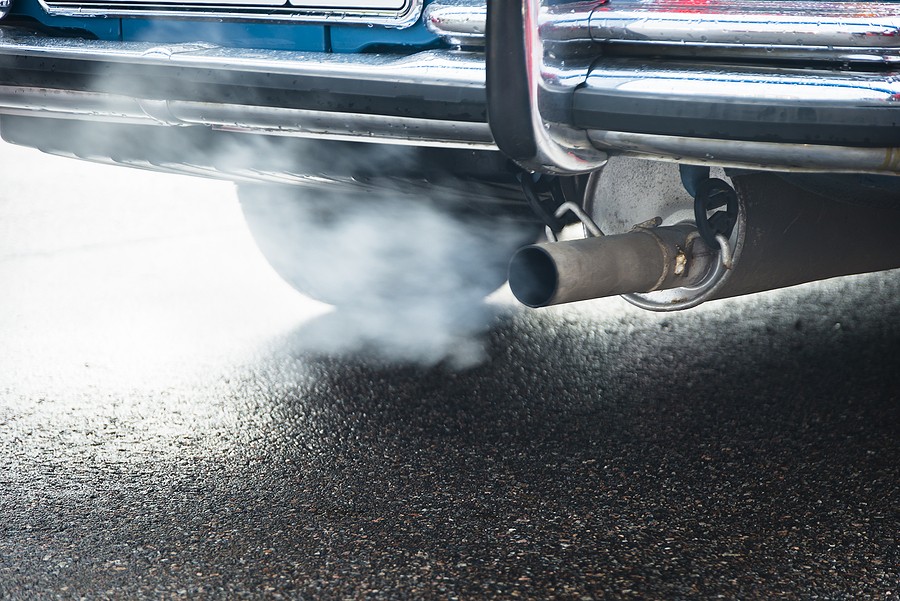
Final thoughts
Many inexperienced drivers might underestimate any potential noises coming from the vehicle. Unfortunately, this leads to increasing repair costs over time and reducing the lifetime of your vehicle.
This article provided you with some very important details about any noises coming from the exhaust system to help you better understand and answer the question, “why is my exhaust loud?” In addition, it's summarized all potential culprits and some recommendations on solutions or at least diagnostics.
If you confirm that your exhaust problem is related to a major problem like those linked to a bad catalytic converter, you have to evaluate the overall situation because sometimes it might not be worth the repair. You'd better sell your vehicle instead of wasting your time and money. Looking at the silicon with major problems, you can always reach out to cash car buyers!
Cash Cars Buyer is one of the top-rated car removal companies in the nation that guarantees to pay you the top dollars and provide you with free towing despite your living location around the United States.
Our process is very straightforward and doesn't take more than a couple of days to get your car removed safely and for the most money.
All it takes you is to:
- Describe your car's type and condition
- Receive our instant free quote
- Accept the quote
- Get your car removed and receive your cash payment on the spot!
To learn more about our process and our team, you can reach out to us by calling us at (773) 791-4363 or visiting our home page click on the free instant online offer.

